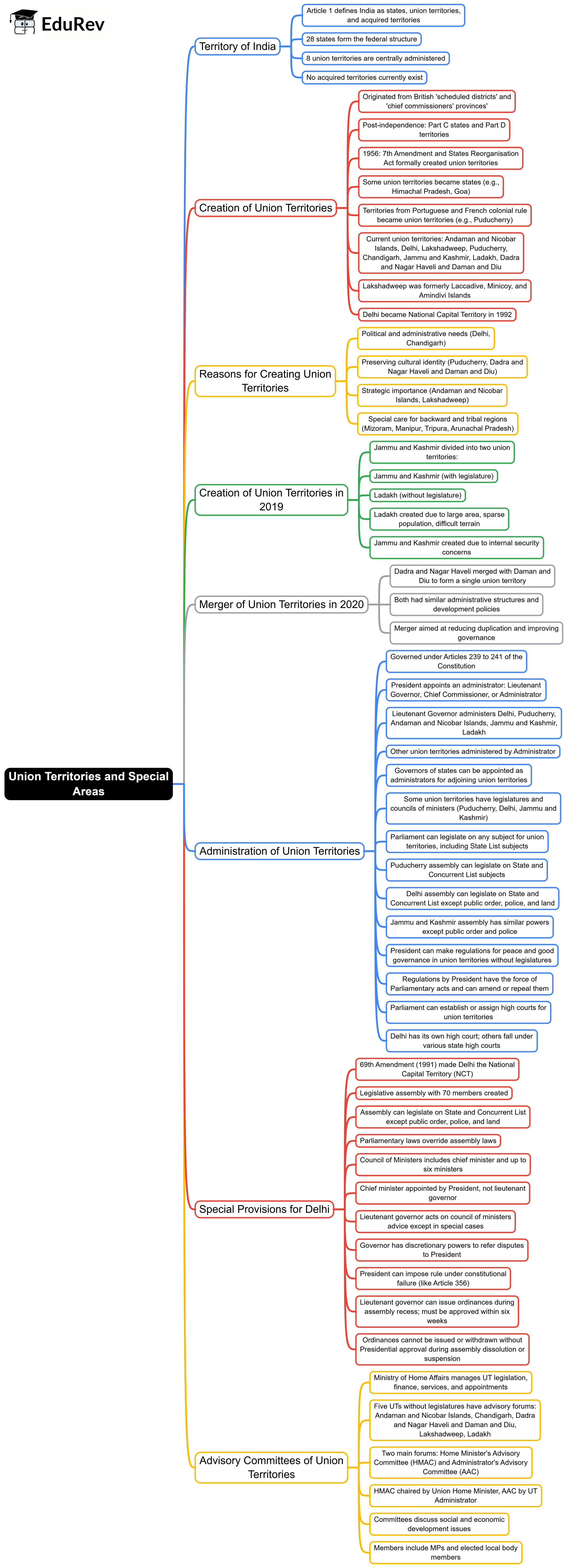UPSC Exam > UPSC Notes > Indian Polity for UPSC CSE > Mind Map: Union Territories
Mind Map: Union Territories | Indian Polity for UPSC CSE PDF Download

The document Mind Map: Union Territories | Indian Polity for UPSC CSE is a part of the UPSC Course Indian Polity for UPSC CSE.
All you need of UPSC at this link: UPSC
|
142 videos|777 docs|203 tests
|
FAQs on Mind Map: Union Territories - Indian Polity for UPSC CSE
| 1. What are Union Territories in India? |  |
Ans. Union Territories (UTs) are regions in India that are governed directly by the Central Government. Unlike states, which have their own governments, Union Territories are administered by a Lieutenant Governor or an Administrator appointed by the President of India. They have varying degrees of legislative power, with some having their own legislative assembly while others do not.
| 2. How many Union Territories are there in India? |  |
Ans. As of now, there are 8 Union Territories in India. These are Andaman and Nicobar Islands, Chandigarh, Dadra and Nagar Haveli and Daman and Diu, Lakshadweep, Delhi, Puducherry, Jammu and Kashmir, and Ladakh. The number of Union Territories can change with political decisions and administrative reorganization.
| 3. What is the difference between a Union Territory and a State in India? |  |
Ans. The primary difference between a Union Territory and a State is in their governance. States have their own governments and more autonomy under the Constitution, while Union Territories are governed by the Central Government. Additionally, States have greater legislative powers and rights compared to Union Territories, which may have limited or no legislative assemblies.
| 4. Can Union Territories have their own legislative assemblies? |  |
Ans. Yes, some Union Territories can have their own legislative assemblies. For example, Delhi and Puducherry have their own legislative assemblies and elected representatives, enabling them to make certain laws and regulations. However, the extent of legislative power varies among Union Territories, and some do not have an assembly at all.
| 5. What is the significance of Union Territories in India? |  |
Ans. Union Territories hold significant importance as they often represent regions that require special administrative attention due to their unique geographical, cultural, or demographic characteristics. They can help in decentralizing governance and allowing for focused development in specific areas, ensuring that the needs of diverse populations are addressed effectively by the Central Government.
Related Searches

















